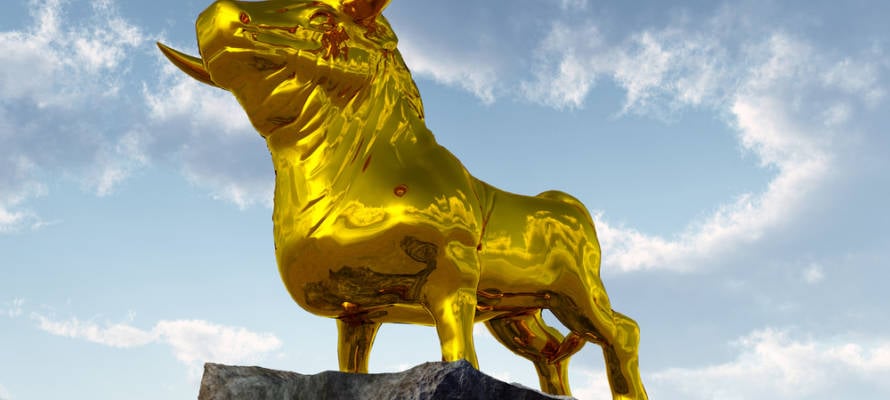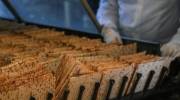A number of Torah commentators blame Aaron the High Priest for the sin of the Golden Calf. But was he actually guilty?
By Rabbi Ari Enkin, Rabbinic Director, United with Israel
This week’s Torah portion is “Ki Tisa” (Exodus 30:11–34:35), and in it we read of the infamous episode of the Golden Calf, one of the most intriguing chapters in the Torah.
For centuries, rabbinic commentators have wondered how and why the Jewish people could worship the Golden Calf just days after having been liberated from Egypt and witnessing all the many miracles that God did for them. It just doesn’t make sense!
As such, a number of commentators point the finger of blame at Aaron, and not at the Jewish people, for the sin of the Golden Calf. Indeed, it was he, not the Jewish people, who was banned from entering the Land of Israel, (Moses was also banned from entering the Promised Land, but for very different reasons). Aaron is criticized because, as a leader, he could and should have done much more in preventing the disaster of the Golden Calf, some say.
On the other hand, is Aaron actually guilty?
Notice how throughout scripture, the penalty for idol worship is death, not merely the cancellation of your flight to Israel! If Aaron was truly responsible for the Golden Calf, his punishment would have been much more severe. Related to this is the fact that the death of Nadav and Avihu, the sons of Aaron, happened because they offered an unauthorized sacrifice instead of following the rules of the Torah. They were killed for worshipping God the “wrong way” – hence, imagine what Aaron’s punishment should have been for outright idolatry!
Due to this oddity, some commentators explain that Aaron’s sin was not one of idol worship, but rather of failure to calm the fears of the people. In other words, he ‘compromised’ the sin of idolatry for the sake of peace. This is consistent with the view that the Golden Calf was intended to replace Moses, not God. So, to avoid conflict and to avoid betraying Moses, he decided to create a harmless figurehead, just to keep them busy, which could be discarded upon Moses’ return.
According to another approach, Aaron intended to act for the sake of Heaven. In fact, he did everything he could to avoid having to build it.
For example, Aaron said to the people “Take off your gold rings that are in the ears of your wives, your sons and your daughters, and bring them to me.” Since women and children are protective of their jewelry, he didn’t expect them to give it up so quickly, which would have allowed him to ‘buy time’ until Moses returned. Furthermore, we are told that Aaron built the altar first in order to further delay the building of the calf, among other tactics.
The bottom line is that Aaron was trying to do everything to delay and keep the peace. Although commendable, it doesn’t justify violating the laws of the Torah. Nevertheless, God “went easy” on him with the punishment in recognition of his noble intentions.
For more insights by Rabbi Enkin on this week’s Torah portion, click on the links below.
https://unitedwithisrael.org/living-torah-the-secret-to-the-sweet-scent-of-success/
https://unitedwithisrael.org/living-torah-discover-your-inspiration-and-run-with-it/
https://unitedwithisrael.org/living-torah-never-chase-after-glory/
https://unitedwithisrael.org/living-torah-show-sensitivity-to-others/
https://unitedwithisrael.org/the-lord-is-our-landlord/
https://unitedwithisrael.org/living-torah-holiness-in-time-and-space/
MAKE THE LAND OF ISRAEL EVEN MORE BEAUTIFUL!
PLANT YOUR VERY OWN FRUIT TREES IN ISRAEL!
Farmers near the Gaza border lost family, friends and workers. Spring is here, and they desperately need help to replant the farms. Join us in blessing the People and Land of Israel.
“I will ordain My blessing for you…” (Leviticus 25:4)























